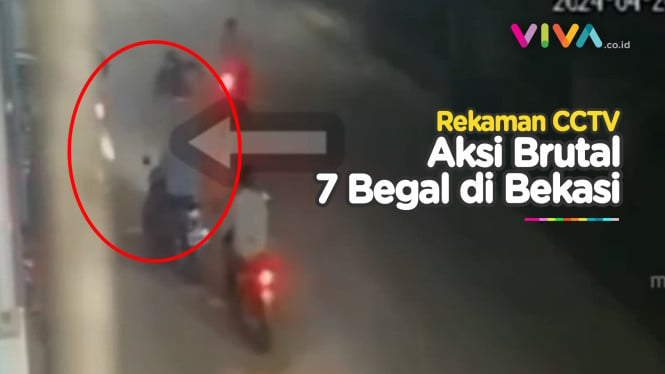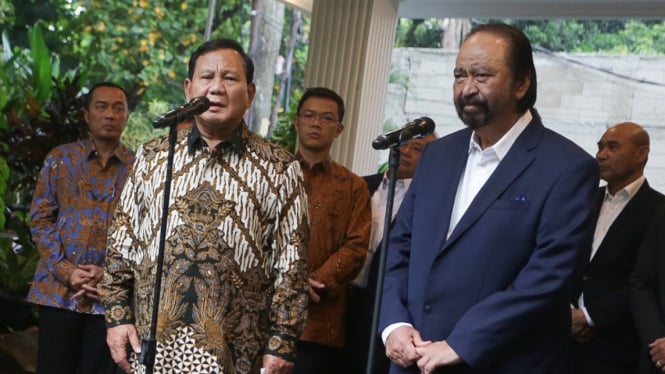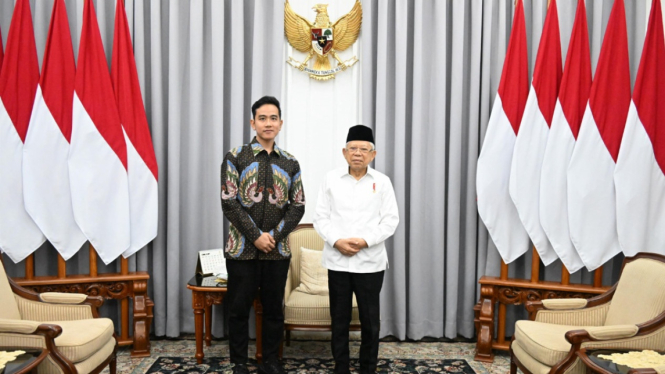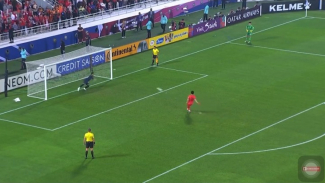VIVAnews - The nation-wide survey was conducted by Reform Institute in the months of November and December 2008. The sample size was 2500 with confidence level of 95 percent. The sample was selected based on gender proportion and provincial population proportion.
The result shows that the Democratic Party’s electability is still on the rise, with 26.36 percent. Meanwhile Indonesian Democratic Party of Struggle (PDIP) obtained 17.8 percent support and the Functional Group Party (Golkar) 14.16 percent.
The Great Indonesia Movement Party’s (Gerindra) electability also increased from 0.08 percent in the June-July 2008 survey in 28th position, to 6.56 percent in the fourth position. People's Conscience Party (Hanura) is now in 6th position (with 3.92 percent) after previously being in the 8th position (with 0.78 percent).
The increased electability of the two above parties means a decline in the rankings of the other parties. For example, the Prosperous Justice Party (PKS) is down to 5th position (5.16 percent). National Mandate Party (PAN) to 7th position (2.1 percent), United Development Party (PPP) to 8th position (2.1 percent) and National Awakening Party (PKB) to 9th position (2 percent).
However, the survey also shows that statistically speaking the number of respondents who said that they might change their minds is still high at 50.11 percent. In fact the number of Democratic Party supporters who said that they might change their minds is up to 47.5 percent. But this does not happen only with the Democratic Party. PKS, whose supporters are known to be most ideologist faces the same phenomena – many of them said they might still change their minds.
The Reform Star Party (PBR) has the highest loyalty level (82.76 percent), followed by PDIP (68.87 percent), PKS (66.29 percent), Democratic Party (58.70 percent), then Prosperous Peace Party (PDS) with 57.14 percent, and Golkar (55.81 percent).
The survey thus indicates a large number of swing voters which will cause a high fluctuation in the electability of the parties, depending on the public’s political mood.
The public also has a political perspective on the coalition of parties. 30 percent of the Democratic Party’s supporters expect that they will form a coalition Golkar Party, 13.96 percent with PDIP, 11 percent with PKS, and 5.6 percent with PAN.
Golkar is also the party that most PDIP supporters expect their party to form a coalition with, with 26.7 percent, followed by Democratic Party (13.48 percent), PKB (7.42 percent) and Gerindra (5.8 percent).
Meanwhile supporters of Golkar itself mostly expect a coalition with Democratic Party (38.14 percent), followed by PDIP (15.54 percent), Hanura (5.65 percent), and then Gerindra (4.52 percent).
The survey indicates that Golkar is the party that supporters of other parties expect their party to form a coalition with. On the other hand, PDIP is the party that is least selected by supporters of other parties to form a coalition with. Only two parties have large number of supporters expecting a coalition with PDIP, namely PPP and PKB.
Translated by: Ramona Sofianne Dewi














